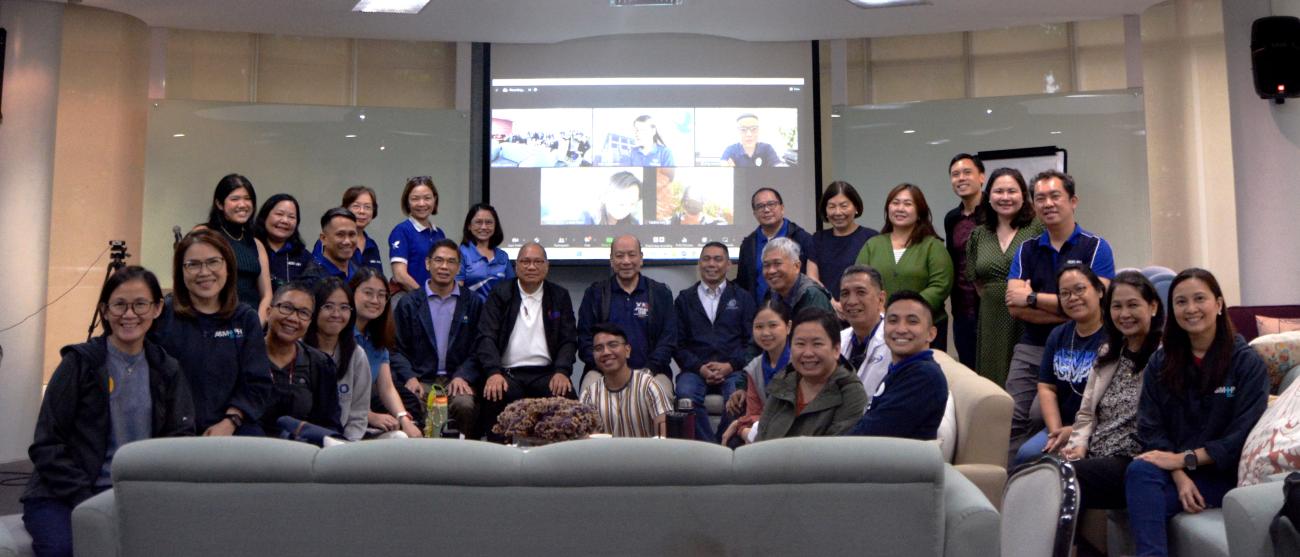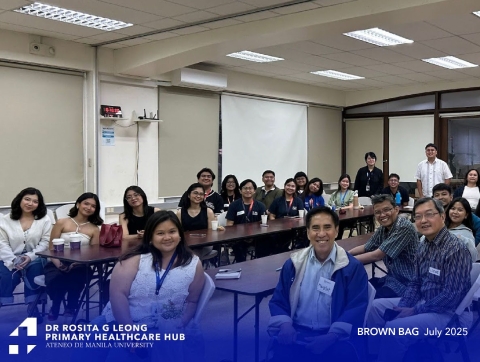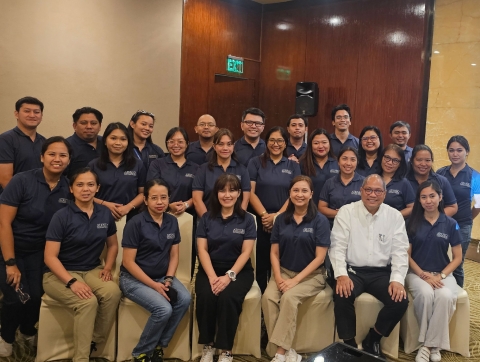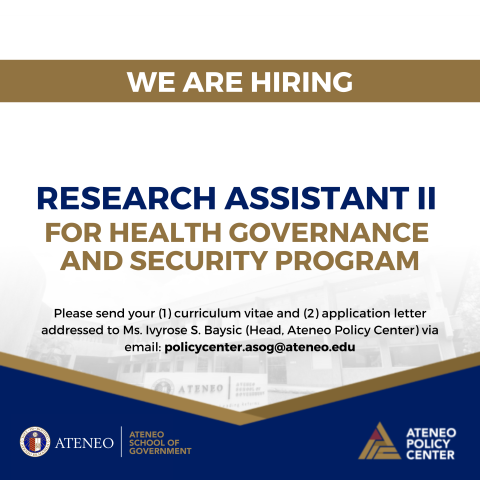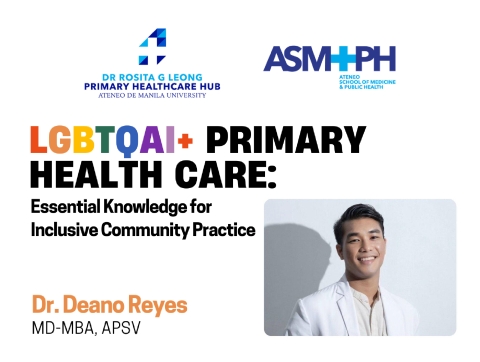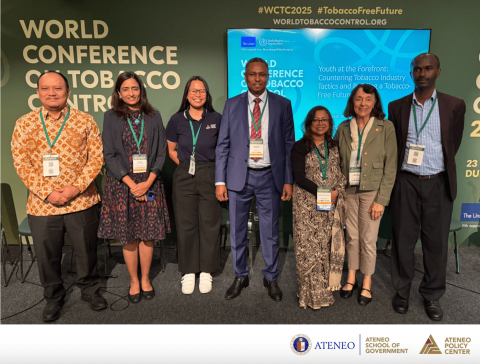ASMPH program review: Beyond Boundaries - A comprehensive evaluation of the MD-MBA journey
05 Jul 2024 | Kathrine Joyce R Molit
On 17-18 June 2024, the Ateneo School of Medicine and Public Health (ASMPH) held a comprehensive program review workshop titled "Beyond Boundaries: A Comprehensive Evaluation of the ASMPH MD-MBA Journey." Initiated by the Office of the Dean, this workshop brought together Year Level Chairs, the Dean's Council, the Medical Education and Quality Assurance Unit (MEQAU), Student representatives, Ateneo Graduate School of Business (AGSB) representatives, and Alumni representatives. The workshop followed the IPP-CERAE framework (Context, Experience, Reflection, Action, Evaluation) to thoroughly assess the MD-MBA program in the areas of Program Learning Outcomes, Content, Teaching-Learning Approach, and Assessment.
Workshop Objectives and Overview
The two-day workshop aimed to review the current state of the ASMPH program, identify areas for improvement, and draft an initial action plan to enhance the program for students, faculty, and the broader healthcare community. The opening session was led by Dr Cenon "Dodie" Alfonso, Dean of ASMPH, who provided an introduction and overview, revisiting the future state of ASMPH. Dr Dodie posed critical questions about social accountability, prompting participants to consider how it is measured and achieved within the program.
Reviewing the Current State
MEQAU presented a detailed review of the program's current state, based on qualitative and quantitative surveys from alumni, employers, year-end student evaluations, exit surveys for graduates, and faculty feedback from 2022-2024. Key points discussed included Program Learning Outcomes, which covered areas such as clinical competence, effective communication, leadership and management of healthcare teams, research engagement, interprofessional collaboration, adherence to ethical standards, nationalism, internationalism, dedication to service, and the practice of social accountability rooted in Ignatian spirituality.
The review also examined the content of the MD, MBA, and Public Health programs, leadership formation, and integration. The teaching-learning approach, incorporating interactive, constructive, active, and passive methods within the Ignatian Pedagogical Paradigm (IPP), was also evaluated. Assessment methods reviewed included exams, Observed Structured Clinical Examinations (OSCE), Oral Integrative Exams (OIE), Team-Based Learning (TBL), Small Group Discussions (SGD), feedback mechanisms, and patient encounters.
Identifying Gaps and Moving Forward
Participants were split into groups to discuss and identify gaps in the program. They were guided by the question: "If we want to be a socially accountable medical school, what gaps do we see that have implications to our program and need to be addressed?"
On the second day, the workshop focused on identifying these gaps and developing action plans to address them. The output from these discussions centered on defining what social accountability means in the ASMPH context: being aware of the current and future needs of the community and engaging all stakeholders; aligning curricula, practices, and research with community health needs and priorities; and incorporating partnerships to address current and future health issues.
Measuring and Achieving Social Accountability
By the end of the workshop, participants had a clearer understanding of the current state of the ASMPH program and had identified areas for improvement. A deeper understanding of social accountability in the context of ASMPH was likewise achieved. An initial action plan was drafted to enhance the program, better meeting the needs of students, faculty, and the broader healthcare community. This comprehensive evaluation sets the stage for ASMPH to continue its journey toward excellence in medical education, aligned with global best practices and dedicated to social accountability.

